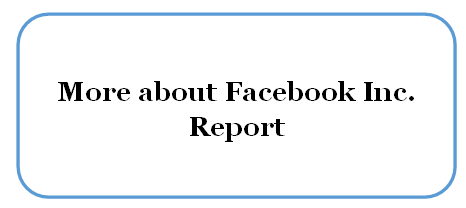Facebook CSR Overview
 Surprisingly, despite the size and scope of its business activities, Facebook Inc. does not release an annual Corporate Social Responsibility (CSR) report detailing its programs and initiatives. The company has a dedicated Facebook page ‘Green on Facebook’ that regularly announces its charitable programs and CSR activities. Additionally, Facebook has a website at www.sustainability.fb.com dedicated for the same purpose.
Surprisingly, despite the size and scope of its business activities, Facebook Inc. does not release an annual Corporate Social Responsibility (CSR) report detailing its programs and initiatives. The company has a dedicated Facebook page ‘Green on Facebook’ that regularly announces its charitable programs and CSR activities. Additionally, Facebook has a website at www.sustainability.fb.com dedicated for the same purpose.
The table below illustrates the highlights from the latest report for 2015:
| Categories of CSR activities | Facebook Performance |
| Supporting local communities | The company hosts farmers market at its Menlo Park headquarters each week providing fresh produce to the Belle Haven and East Palo Alto communities.Facebook has collaborated with Menlo Park Rotary Club to build The Belle Haven Community Garden, where families in the community now have access to 25 planting beds that are free to use.The company has sponsored solar installations on homes in Belle Haven through its partnership with Menlo Spark and Grid Alternatives. |
| Educating and empowering workers | Facebook has an employee satisfaction rating of 93 per cent due to competitive pay, informal and empowering organizational culture |
| Labour and human rights | It has been noted that “Facebook employees are often placed in roles that cater to their strengths and are encouraged to question and criticize their managers”[1] |
| Employee health and safety | Facebook strives to have maximum amount of natural light in its offices and serves local organic food in its kitchens |
| Gender equality and minorities | White males constitute 39.1 per cent of employees and black males and females represent only 1.7 per cent of employees. Also, Hispanic males and females represent only 4.3 per cent of the total workforce[2] |
| Environment a) energy consumption b) water consumption c) Waster reduction and recycling
d) CO2 emissions
|
The company has announced that its latest data centre in Los Lunas, New Mexico will be powered with 100% renewable energyIn 2015, the company’s total energy consumption equalled to 1,310,000,000 kWhAbout 221,000,000 gallons of water was used in 2015. Office space and data centres account for 30 per cent and 70 per cent water usage respectively.Water usage effectiveness, i.e. a measure of the amount of water used in a data centre relative to the energy used by the computing equipment for Facebook Inc. is equivalent to 0.24
The company runs Waste Diversion Program. Waste diversion rate at Menlo Park headquarters exceeds 90 per cent. According to the company, “for an entire year of one person’s Facebook use, our carbon footprint is less than the impact of making one medium sized latte” In 2015 Facebook’s total carbon footprint was 649,000 metric tons of carbon dioxide equivalents. Offices and other business activities account for about 37 per cent of company’s carbon footprint. The remaining 63 per cent is generated in data centers |
| Other initiatives and charitable donations | The company offers advanced transportation system for its employees that includes employee shuttles, as well as resources for ride-sharing, carpooling, taking public transportation, and biking to work.Facebook launched the Open Compute Project (OCP), with the aim of creating an open-source movement within the hardware and data center industry |
Facebook CSR performance[3]
Facebook Inc. Report contains a criticism of Facebook CSR programs and initiatives. The report also illustrates the application of the major analytical strategic frameworks in business studies such as SWOT, PESTEL, Porter’s Five Forces, Value Chain analysis and McKinsey 7S Model on Facebook Inc. Moreover, the report contains analysis of Facebook’s marketing strategy along with discussion of its leadership and organizational structure.
[1] Gillett, R. (2015) “8 reasons why working at Facebook is better than working at Google” Business Insider, Available at: http://www.businessinsider.com/why-its-better-to-work-at-facebook-than-google-2015-4
[2] Seetharaman, D. & Wells, G. (2016) “Facebook’s Point System Fails to Close Diversity Gap” The Wall Street Journal, Available at: http://www.wsj.com/articles/facebooks-point-system-fails-to-close-diversity-gap-1471387288
[3]Figures taken from Facebook official page ‘Green on Facebook’ and www.sustainability.fb.com

